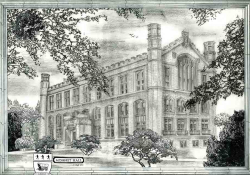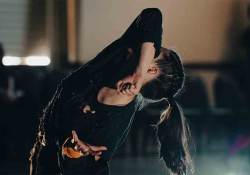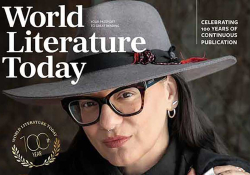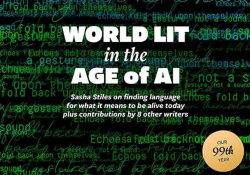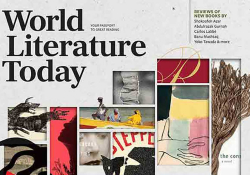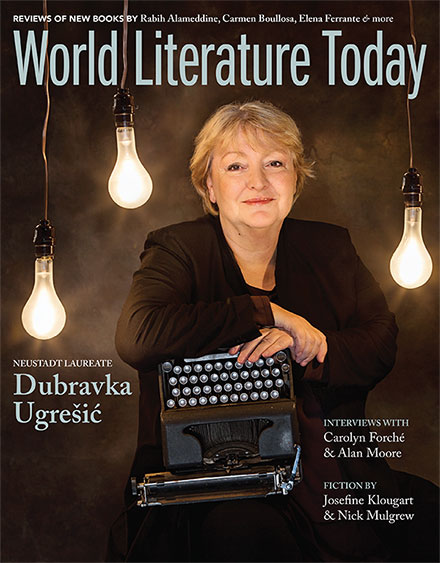Editor’s Note
 Language written in the aftermath of extremity [arises] not from recollection in tranquility but from wanderings in a debris field. – Carolyn Forché, “An Inexhaustible Responsibility for the Other”
Language written in the aftermath of extremity [arises] not from recollection in tranquility but from wanderings in a debris field. – Carolyn Forché, “An Inexhaustible Responsibility for the Other”
As I write this note in the waning days of November 2016, a shrill cacophony of voices predominates. We’re still sorting through the implications of the US presidential election, and in my lifetime, I’ve never felt such personal or collective anxiety about what the future holds. In her career-spanning interview in the current issue of WLT, Carolyn Forché recalls her sense of looking through a “shattered kaleidoscope” while working on the poems that would eventually be published as The Angel of History (1994): “I felt my consciousness fragment during that time, and in the following years I wondered whether I would ever sustain a linear meditative narrative again.”
Elsewhere in the issue, Polish poet and scholar Julia Fiedorczuk reports on her “sense of alienation in the world where massive antifeminist backlash accompanies a resurgence of aggressive nationalistic feelings.” Whereas the poetry of witness, for Forché, represents “the legibility of the mark of extremity and the wounding and the passing through fire,” for Fiedorczuk, when the figure of the poet-prophet or poet-witness is exclusively a masculine one—in the guise of “genius, national bard, witness, or revolutionary”—destructive tendencies result.
And in the keynote talk that she delivered at the 2016 Neustadt Festival, Dubravka Ugrešić looks with dismay on the “processes underway in all the nooks and crannies of Europe,” in Croatia, France, and elsewhere: “I forgot the people who are stubbornly taking us back to some distant century, the people who ban books or burn them, the moral and intellectual censors, the brutal rewriters of history, the latter-day inquisitors.” Yet like every great writer, Ugrešić maintains a belief in the “Gutenberg civilization” that, book by book, she helps sustain. She wagers on “literary continuity,” acknowledging all the while the fragility of the entire edifice. Citing Nabokov’s typology of the writer, Ugrešić casts a wary eye on his analogy of writing as a type of teaching; the author-as-teacher, Nabokov himself admits, risks becoming a “propagandist, moralist, or prophet.” In our cynical age, few would look on these roles without suspicion.
Nabokov posits two other roles for the writer: storyteller and enchanter. “To the storyteller,” he writes, “we turn for entertainment, for mental excitement of the simplest kind, for emotional participation, for the pleasure of traveling in some remote region in space or time.” While good writers combine aspects of teaching and storytelling in their work, Nabokov maintains that the best writers, those who embody “genius,” must also be “enchanters.” Ugrešić wholly agrees, but whether the enchanters can hold out against the book burners, censors, and inquisitors remains an open question.
In a postscript to her interview, added in the aftermath of Donald Trump’s improbable election, Forché insists that we must return to basic principles of solidarity and empathy: “In times like these, and from what I know of the world, one must marshal inner strength, must be courageous and resolute, calm and vigilant, must connect with others of like mind, must not compromise with racism, bigotry, and hatred but must also be quietly prepared for the consequences of every confrontation (physical harm, imprisonment, death).”
Will enchantment suffice in the months and years ahead? Only if we retreat inside the Gutenberg edifice. When seismic shifts threaten to tumble down the walls upon us, my own inclination is to join the moralist or prophet still standing outside them, her voice crying out in the wilderness.
Daniel Simon
